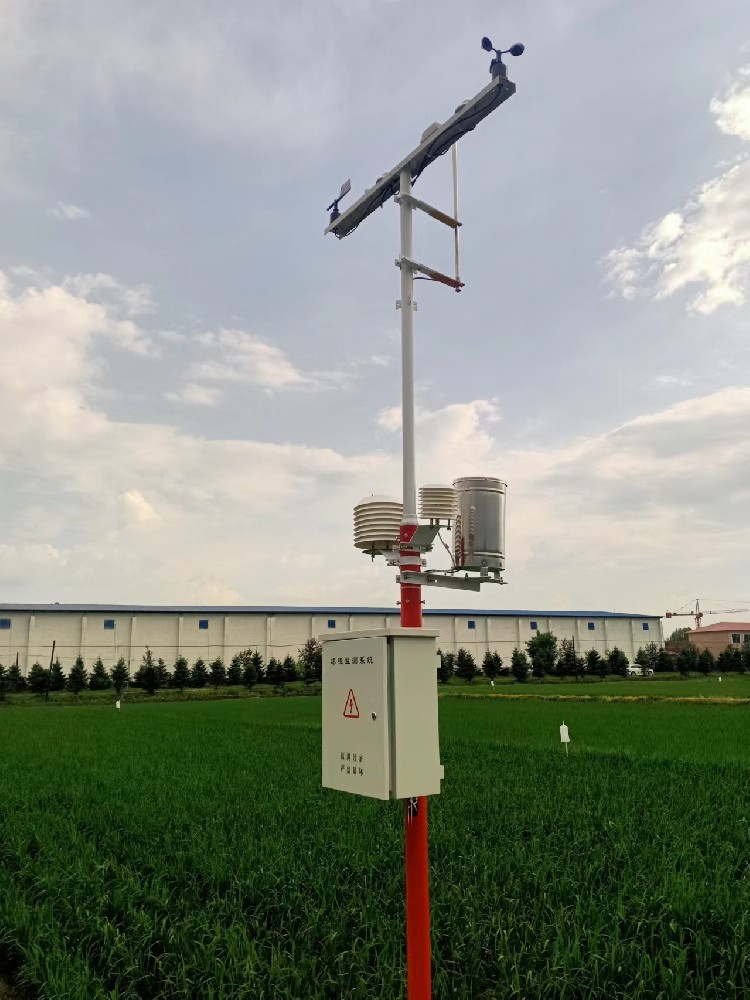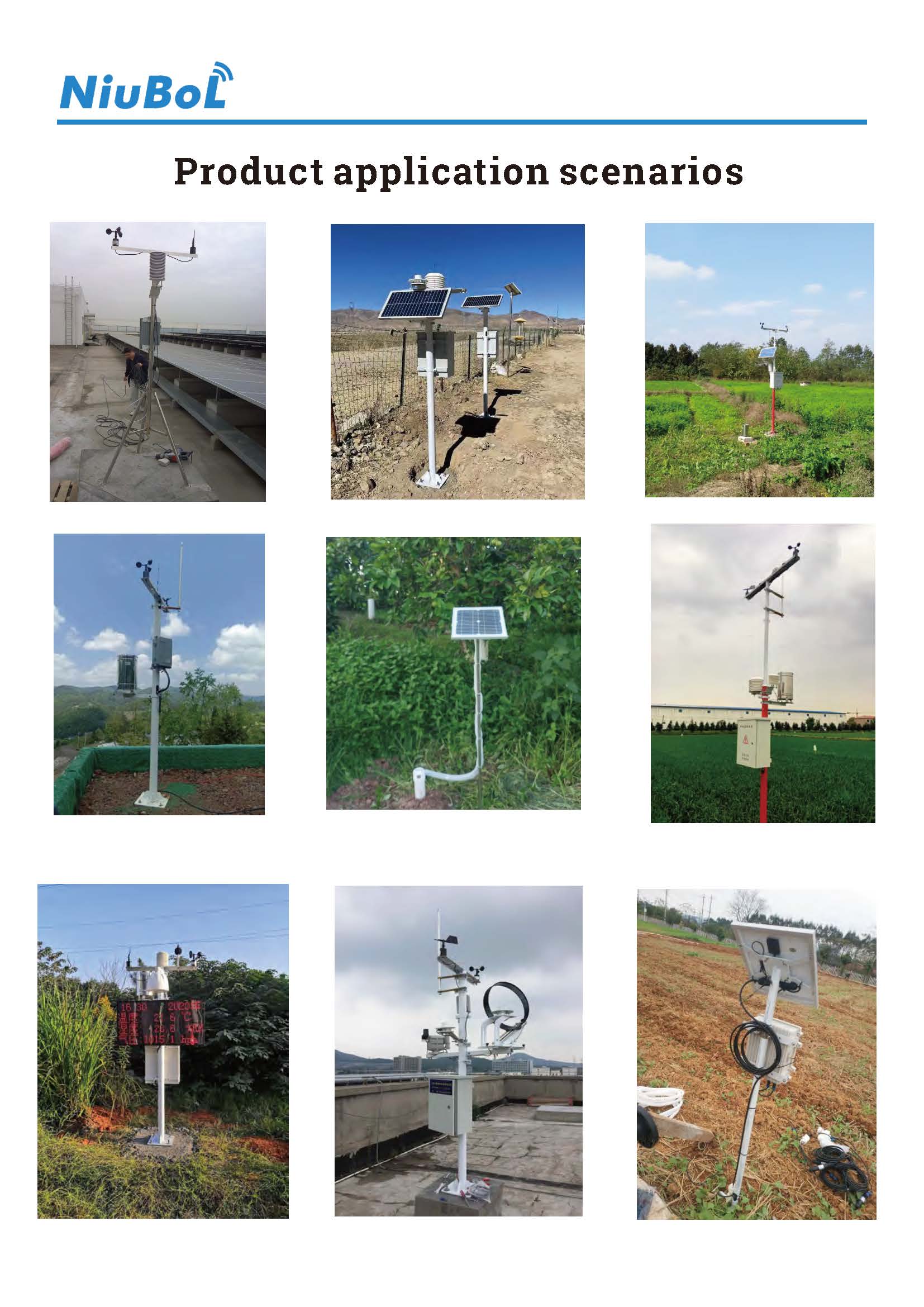

— Blogs —
—Products—
 Consumer hotline +8618073152920
Consumer hotline +8618073152920 WhatsApp:+8615367865107
Address:Room 102, District D, Houhu Industrial Park, Yuelu District, Changsha City, Hunan Province, China
Product knowledge
Time:2024-08-27 10:36:21 Popularity:2537
Automatic weather station is a kind of observation device that can automatically collect and transmit meteorological information. It consists of meteorological sensors, microcomputer meteorological data collector, power supply system, radiation-proof ventilation cover, all-weather protective box and meteorological observation bracket, communication module and other components. The automatic weather station is capable of automatically detecting several meteorological elements (such as wind speed, wind direction, rainfall, air temperature, air humidity, light intensity, etc.), generating reports automatically without human intervention, and transmitting the detection data to the central station at regular intervals. This kind of equipment is an important means to make up for the blankness of meteorological detection data on the space area, and it is widely used in many fields such as meteorology, agriculture, transportation, aviation and ocean.
As a kind of equipment that can observe and store meteorological observation data automatically, automatic weather station has the advantages of high precision, real-time monitoring, data sharing, etc., but at the same time there are also some disadvantages. The following is an overview of the disadvantages of automatic weather stations:
Technical complexity: automatic weather station relies on complex electronic technology and software programs, the internal structure is relatively complex, which makes it more difficult to repair in the event of a failure, and requires higher professional quality of technicians.
Vulnerability: Automatic weather station equipment and data recorders are susceptible to vandalism and contamination, which may affect the accuracy and reliability of weather data.
Energy dependence: Automatic weather stations require a stable power supply, and in the event of a power outage or unstable power supply, data collection and transmission may be affected. Although many automatic weather stations are designed with solar power supply systems, the power supply may become a bottleneck for operation under continuous rainy or extreme weather conditions. This problem is particularly acute in remote areas or areas with inadequate power infrastructure.
Communication interruption: The data transmission of automatic weather station depends on a stable communication network, communication interruption or unstable signal will result in the data not being transmitted to the central station in time, affecting the timeliness and availability of data.
Initial investment: Although automatic weather stations can save labor costs in long-term operation, their initial investment is relatively high, including the costs of equipment purchase, installation and commissioning, and personnel training. This may become a factor to be considered by some organizations or individuals with limited budgets when making purchases.
Maintenance costs: Although automatic weather stations can be automated for long-term operation and maintenance, regular maintenance and overhaul are essential. These maintenance costs also need to be included in the overall consideration.

Automatic weather stations are able to collect data from a variety of meteorological elements in real time, which makes the amount of data become unusually large. For some systems with limited processing power, it becomes a challenge to effectively store, process and analyze this data.
Although automatic weather stations reduce manual intervention, they still require regular maintenance and calibration to ensure data accuracy after long-term operation. Sensors may drift due to environmental factors or prolonged use.
6.Environmental Interference:
Electromagnetic interference, extreme weather conditions (e.g., strong winds, heavy rains, freezing temperatures) may affect the performance of the sensor and the reliability of the data, especially without proper protection.
Automatic weather stations transmit data over networks and may be exposed to the risk of data interception or tampering, especially in the absence of appropriate encryption measures.
In certain remote or specialized environments (e.g., polar regions, deserts), automatic weather stations may require special customization, adding complexity and cost.

Summary of Automatic Weather Station
Automatic Weather Stations are systems of integrated sensors, data collectors and communication modules that automatically monitor atmospheric conditions and transmit data wirelessly or wired to a central database. They are designed to reduce manpower requirements and improve the efficiency and continuity of data collection, and are an important tool for modern weather observation and research. However, to be fully effective, the limitations mentioned above must be overcome.
Related recommendations
Sensors & Weather Stations Catalog
Agriculture Sensors and Weather Stations Catalog-NiuBoL.pdf
Weather Stations Catalog-NiuBoL.pdf
Related products
 Combined air temperature and relative humidity sensor
Combined air temperature and relative humidity sensor Soil Moisture Temperature sensor for irrigation
Soil Moisture Temperature sensor for irrigation Soil pH sensor RS485 soil Testing instrument soil ph meter for agriculture
Soil pH sensor RS485 soil Testing instrument soil ph meter for agriculture Wind Speed sensor Output Modbus/RS485/Analog/0-5V/4-20mA
Wind Speed sensor Output Modbus/RS485/Analog/0-5V/4-20mA Tipping bucket rain gauge for weather monitoring auto rainfall sensor RS485/Outdoor/stainless steel
Tipping bucket rain gauge for weather monitoring auto rainfall sensor RS485/Outdoor/stainless steel Pyranometer Solar Radiation Sensor 4-20mA/RS485
Pyranometer Solar Radiation Sensor 4-20mA/RS485
Screenshot, WhatsApp to identify the QR code
WhatsApp number:+8615367865107
(Click on WhatsApp to copy and add friends)
